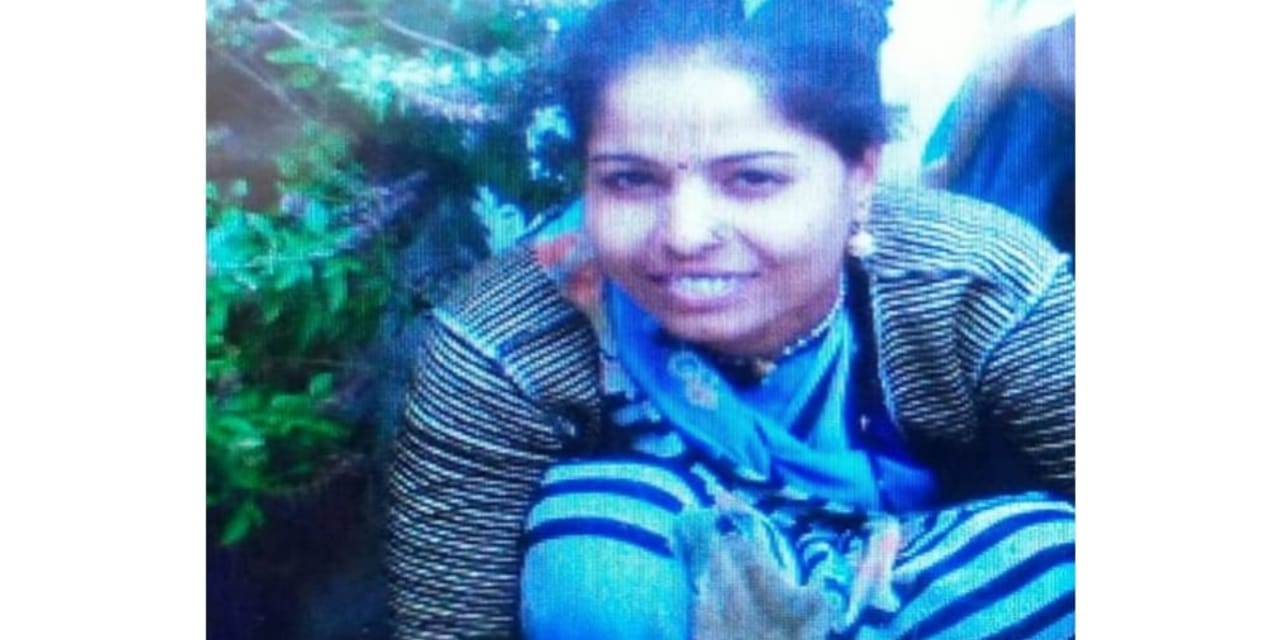No products in the cart.
While Media is showing religious fights, people set a great example in India | The Youth
Hindus donate Land for ‘Burial Ground’ to Muslims in Ayodhya
In a heartwarming gesture that will bridge the communal gap between Hindus and Muslims, Hindus in UP’s Ayodhya stepped forward only to donate land to Muslims so that it can be used as ‘burial ground’ by them.
It has been learnt that the land was donated in the Belarikhan village under the Gosaiganj Assembly constituency. The land had long been a subject of debate between the two communities until now.
Surya Kumar Jhinkan Maharaj, who is a local seer, and other shareholders signed the deed for 1.25 bissas of land on the date June 20 to bury the hatchet once and for all.
The other signatories came from Ram Prakash Bablu, Ram Singar Pandey, Ram Shabad, Jiya Ram, Subhash Chandra, Rita Devi, Vindhyachal and Awadhesh Pandey.
“The land belonged to Hindus as per records. It is by the side of a graveyard and some Muslims have buried their dead on the land. There were disputes and tension. But now, we have settled the matter,” Jhinkan Maharaj told news agency IANS.
“The deed is now in favour of the Qabristan Committee, Gosainganj and it will soon be entered in revenue records,” Vais Ansari, President of the Qabristan Committee told IANS.
Khabbu Tiwari who is the local BJP MLA who took the initiative told IANS, “The tradition of Hindu-Muslim brotherhood here is not new. This was a small token of love from Hindus to Muslims. I hope this amity will continue.”
Religion never divided these two communities in the town and it is no wonder why they share each other’s happiness and sorrows. They all enjoy each others’ festivals because humanity is always the winner no matter what situation it is.
Kerala mosque hosts wedding for a Hindu couple sets an example of Communal Harmony
In what was an epic example of communal harmony, Kerala mosque hosted a wedding for the Hindu example in its premises. The Cheravally Muslim Jamaath Committee, Kayamkulam, on January 19 won the people’s hearts by hosting Hindu wedding as Sarath Sasi of Krishnapuram and Anju Ashok of Cheravally tied the knot as per Hindu rituals in front of lit traditional lamps. The marriage was performed by a Hindu priest.
The Jamaath committee marked their presence for the function. Several embers of both the Hindu and Muslim communities witnessed the marriage. Besides hosting the wedding, the mosque committee had served a vegetarian ‘sadya’ to around 1,000 guests. Ms. Anju was given 10 sovereigns of gold and ₹2 lakh as gifts.
Chief Minister Pinarayi Vijayan described the wedding “an example of unity from Kerala”. He tweeted: “Congratulations to the newlyweds, families, mosque authorities and people of Cheravally”.
The bride lost her father a couple of years ago and as the family lacked resources for the wedding, Ms. Anju’s mother had another idea in mind as she sought the help of the mosque committee.
“She came to my house seeking help for conducting the marriage. She gave a letter, which I presented to the Jamaath committee. We decided to help the family conduct the marriage,” Nujumudeen Alummoottil, secretary, Cheravally Muslim Jamaath Committee added according to The Hindu.
Bindu Ashok who is the mother of Ms. Anju, said the family was indeed thankful to the Jamaath Committee. She has three children, and the family lives in a rented house.
Shri Sita Ram Temple in Ayodhya hosts ‘Iftaar’ during Ramzan
In a bid to spread the message of communal harmony, Shri Sita Ram temple in Ayodhya planned to do something great. The temple hosted an Iftar meal on May 20.
Hindus and Muslims sat together to enjoy the Iftar meal in temple premises. Incidents like this one make sure that love, compassion and humanity are above everything else in the world.
The priest of the temple Yugal Kishor told news agency ANI, “This is the third time we have organised an Iftar party. I will continue to do the same in the future as well. We should celebrate every festival with great zeal.”
Showing the similar incidents, an attendee Mujammil Fiza added that he also celebrates Navratri with his Hindu friends each year.
“People with an agenda do not want communities to come together and hold an event like this. In a country where people play politics in the name of religion, people like Yugal Kishor send out a message of love,” he added.
It is well known that during the holy month of Ramzan, the Muslim community fasts for 30 days and does not even consume food or water from sunrise to sunset. Their day begins with a Sehri (a pre-dawn meal) and ends with Iftar – post-dawn meal.
Sikh girl donates her kidney to save her Muslim friend’s life, bridges Communal Gap
In what was a heart-touching story, a Sikh girl from Jammu by the name of Manjot Singh Kohli, 23, saved her friend’s life by donating her kidney to Samreen who is suffering from a kidney ailment. The latter’s life was in danger and she badly required a kidney transplant to survive.
It is a great example when one comes forward to donate a kidney and save the life of a colleague. Thanks to Manjot Singh Kohli! You won our hearts! Manjot agreed to donate her kidney to Samreen despite her family having reservations about it.
Nonetheless, despite having done with all the formalities, the authorisation committee has still not finished the case “since the father of the donor has made a representation cautioning against removing kidney of his daughter for the transplant”.
“We can’t blame them (family). They are emotionally attached to their kid. I cannot say they are wrong. From their point of view what they are doing is right. But I think rising above the emotions, we should do what God has sent us for. All the relations will stay here and saving life is most important. Plus I am a major and I can take decisions of my own,” Manjot told DNA.
Hailing from Jammu’s Udhampur, Manjot met Samreen four years ago and since then they had been friends. “Since I am a social activist and she used to participate in my activities and we became good friends.
Some months ago, I read a Facebook status of our common friend about Samreen. I was confused about whether she is the same Samreen. Next day I took the flight to meet her,” Manjot Singh Kohli who also is the youngest women entrepreneur of the state and chairperson of an NGO ‘International Anti-Corruption and Human Rights Council’.
Samreen who is from Sher-e-Kashmir Institute of Medical Sciences (SKIMS) Srinagar added that Manjot can any do anything for her. “For the last four months, she has not budged from her stand. She is the finest example of true friendship,” said Samreen, who skipped masters programme following her illness.
Mukhtar Ahmad Malik, Samreen’s father said “I am a simple tailor and have spent Rs 7-8 lakh for treatment. But her condition is deteriorating by the day. Even after Manjot offered the kidney and completed all the formalities, her father is not accepting. I have told her that family is her priority and she should back out,” he said.
Dr Farooq Jan, Medical Superintendent of SKIMS, added that the father of the donor asked the institute not to allow the girl to offer her kidney. It has been said that Manjot’s family was also against her decision, but Manjot is firm.
“I’m not scared of anything. My only concern is that humanity should not lose out. My family has got swayed by emotion… but I shall go ahead anyway,” Manjot told The Telegraph.
“My strong belief in humanity is motivating me, and you can see the communal harmony my decision is creating…. Had my family supported me, it would have made me very happy. But I’m an adult and nothing bars me legally from donating my kidney,” she said.
Ramveer Kashyap- Hindu man takes care of the Mosque he saved during the 2013 riots
Hailing from Muzaffarnagar’s Nanheda village, Ramveer Kashyap mason is selflessly taking care of the lone 120-year-old mosque. The 59-year-old Mason believes that it’s a “religious” duty to protect. During the daybreak, Kashyap cleans up the mosque and then lights a candle in the evening and then he gets the structure fully whitewashed once before every Ramzan.
It was during the communal riot in 2013, a notorious group decided to destroy the mosque. Seeing this, Ramveer Kashyap sprung into action without even caring about his life. He immediately called village men for support. They all stood united and never gave up. Kashyap says that he respects all places of worship as he wants to spread love. “My faith teaches me to respect all places of worship,” he told TOI.
Astonishingly, Nanheda village doesn’t have a single Muslim inhabitant. Nanheda is a Jat-dominated village with a minority of Dalits and OBCs living there. Ramveer highlighted that there were quite a large number of Muslims during the British era. According to him, they moved out slowly after Independence. He adds saying that visitors come once in a while to offer prayers.
According to Ramveer, the village had a large number of Muslims during the British era. “However, they moved out gradually after Independence. Now, an occasional visitor or a traveller offers namaz here once in a while,” he was quoted as saying by TOI as per TNN inputs.
Kashyap stays near to the mosque and he grew up watching the construction. When there is nobody to take care of the mosque, it’s Kashyap himself who protects the mosque as he believes that the place of worship deserves respect. Not for a while but for the past 25 years, he has been doing this to maintain the mosque.
“I stay barely 100 metres away from the mosque. I grew up watching the structure and playing around it. For me, it is a place of worship, which deserves respect. In the absence of anyone taking care of it, I took up the responsibility as a young man. For the past 25 years, I broom the premises daily and ensure basic maintenance,” Ramveer said.
Kashyap who is a mason by trait has been so comfortable with taking care of the mosque from time to time. Ramveer received a lot of respect in his own village and in the region as well. Nanheda village pradhan Dara Singh said, “It has been nearly 50 years since the last Muslim family moved out of the village. But the mosque remains and is maintained the way it should be. And the credit for this goes to Ramveer who even spends his own money to get it whitewashed once before every Ramzan. At times, his family members also assist him in cleaning up the place.”
Khusnaseeb Ahmad who is a healthcare professional in the neighbouring Khedi Firozabad village said adding that “I had visited the village a few years ago and was surprised to see a Hindu man looking after the mosque. I even offered namaz there. There are enough examples of love and harmony to counter hate.”
Ashraf Usmani, in-charge, organisation and development department of Darul Uloom, added, “It is this aspect of India that makes it great. Examples like Nanheda are spread all across India. Soon after partition when all Muslims moved to Pakistan especially from Punjab, there were Sikhs and Hindus who protected and preserved mosques which are still there. Similarly, there are instances of Muslims protecting temples at many places.”
Meet Motibar Rahman- a Muslim Man who is looking after Hindu Temple and taking care of it
Rahman is selflessly looking after Hindu temple and taking care of it. 73-year-old Muslim man believes that it’s a “religious” duty to protect and his faith teaches him to respect all places of worship. This indeed goes to show that love, compassion, humanity is beyond anything else in this world and it was proved by him.
Rahman like his forefathers sweeps the Burha Gosair Than shrine each morning and lights candles for Shiva.
“Before me, my father used to do this work and his father before him. Our family has been the keepers of this holy place for the past 500 years,” the 73-year old told news agency AFP.
“The first man in our family is Borhansa. Lord Shiva came to Borhansa and told him, ‘I want to live in this place. From now on it will be the responsibility of your family to keep this place. I shall accept service from your family only and no one else’,” Rahman explained.
Interestingly, apart from the Hindus, scores of Muslims too come to this temple and offer prayers. According to people (Hindus and Muslims), prayers are often fulfilled.
“Apart from the Hindus, lots of Muslim people also come here and offer prayers. People including the Hindus and Muslims say that their prayers are often fulfilled,” he said.
This is not the first time that a Muslim man has been looking after the Hindu temple. A 60-yr-old Muslim man takes care of 500-yr-old Shiva Temple, he has full faith in Shiva
A 500-year-old Shiva temple is a centre of attraction at the Rangamahal village in Guwahati, Assam. The temple is popular to the people of the state. It attracts tourists from all across the nation and not many know that it is a Muslim family that has been taking care for generations now.
Yes, you read it right! Both Muslims and the Hindus of Rangmahal village have a strong belief in the deity and they daily visit the religious shrine to offer prayers, reported ANI.
“I call him Nana (maternal grandfather). It’s a 500-year-old temple, our family looks after the temple. People from both the religions – Hindu and Muslim-come here to offer prayers,” Matibar Rehman, caretaker of the Shiva temple told the news agency.
He further added that Muslims do ‘dua’, while Hindus do ‘puja’ here. Everyone’s wishes are fulfilled here,” Rehman added.
Rehman offers ‘dua’ in the ‘Shivalaya’ and his family has been taking care of the temple for more than 4 decades now. As per the statements by locals, the temple is deemed as the perfect example of Hindu-Muslim unity in Assam.
Needless to say, this is not the first time that a family has been praised for taking care of a temple not belonging to their religion.
St. Matthew’s Church located in the Hazada District town of Nathia Galiyat has turned into a symbol of ‘communal harmony’ in Pakistan. Waheed Murad and his family members have been taking care of the church for over 100 years now. Interestingly, the custodianship of the property has been passed on for three generations.








